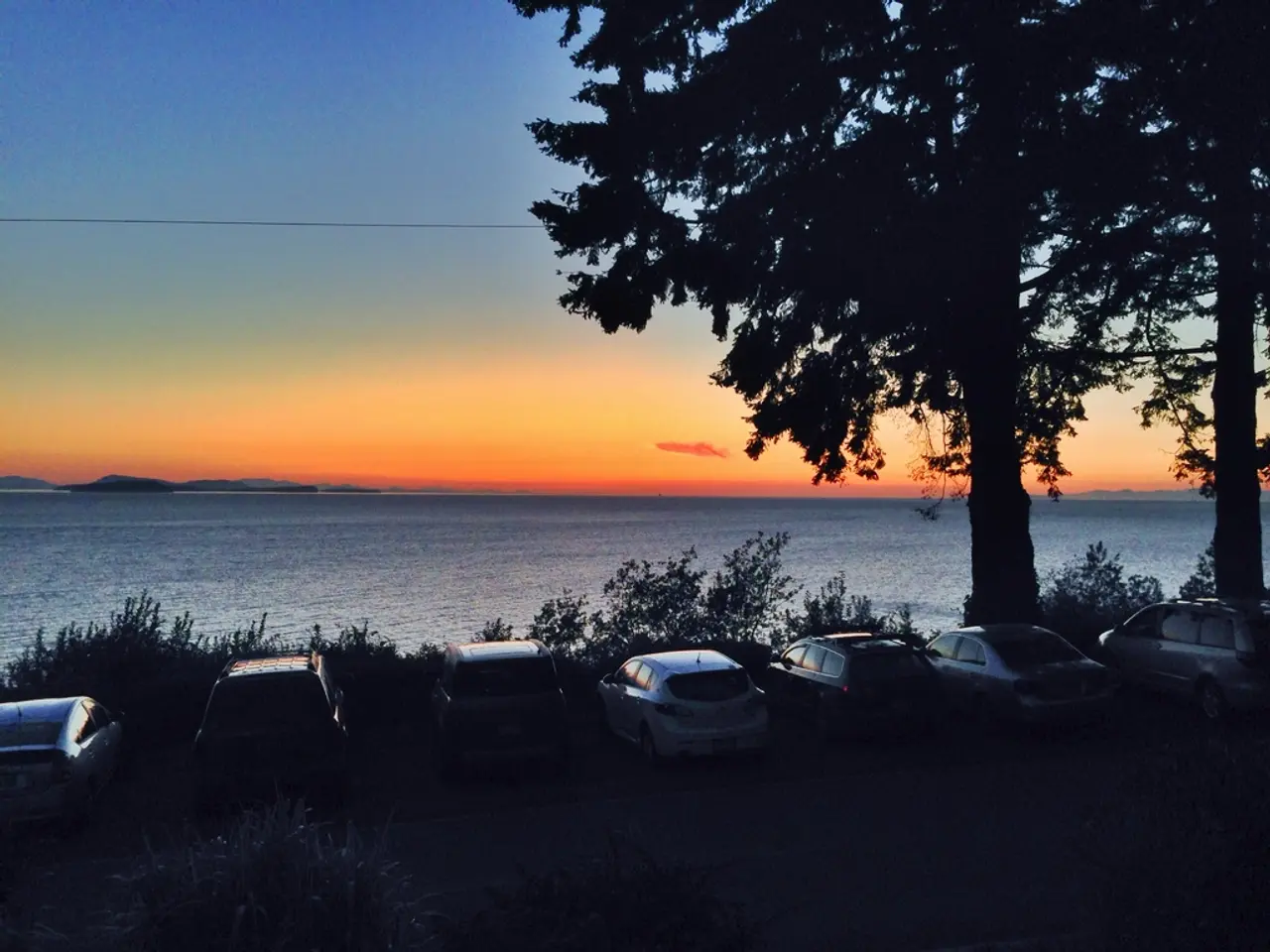Advocacy for Wetland Preservation, Wildlife Protection, and Youth-Led Conservation Efforts in the Philippines: Matthew Vincent Tabilog's Crusade
Mangrove Matters PH, a youth-led initiative, is making waves in the Philippines by promoting mangrove conservation through reforestation projects, nursery workshops, and public awareness campaigns. Matthew Vincent Tabilog, a 25-year-old Filipino and the founder of Mangrove Matters PH, is at the helm of this movement.
Tabilog, who hails from coastal Talisay City in Negros Occidental province, has been actively involved in mangrove conservation efforts. He currently pursues graduate studies at Hokkaido University, focusing his research on seagrass ecosystems, an often overlooked blue carbon ecosystem in the Philippines.
Mangrove conservation in the Philippines is a multi-faceted approach, involving scientific research, community engagement, policy support, and the creation of new protected areas. Local communities, fisher associations, and civil society groups have been instrumental in establishing marine protected areas (MPAs) and restoring mangrove habitats.
One such example is the newly designated marine protected area in Bitaug, which resulted from an 18-year community campaign. This highlights the strong grassroots leadership and multi-sectoral collaboration that protects mangroves and supports fisheries livelihoods.
Science-based awareness and education are key aspects of these conservation efforts. National events like the International Day for the Conservation of the Mangrove Ecosystem in the Philippines involve universities and environmental advocates promoting awareness of mangrove ecological and socio-economic value.
The Philippines aligns with global efforts to develop standardized frameworks for mangrove restoration, sustainable use, and governance. The momentum for inclusive governance and community stewardship is echoed locally, as demonstrated by Mangrove Matters PH's lobbying for key legislation on marine protected parks in the Philippine Senate last year.
Mangroves provide significant benefits to local communities and contribute to climate change mitigation. They enhance food security and livelihoods by serving as breeding grounds for fish and other marine life, supporting fisherfolk and local economies. Mangroves also provide natural coastal defense, reducing flooding and damage from storms, which is essential in a climate-vulnerable country like the Philippines.
As carbon sinks, or "blue carbon," mangroves absorb and store significant amounts of CO2, contributing to national and global climate change mitigation strategies. Conservation efforts foster community ownership and stewardship, improving the sustainability and resilience of both ecosystems and local socio-economic systems.
Mangrove Matters PH has been actively involved in these efforts, donating equipment to women community members of Tambobo Bay, Negros Oriental. The organisation is currently campaigning to protect the Las Piñas-Parañaque Wetland Park, a Ramsar site in Metro Manila.
Tabilog has also worked with Oceana Philippines on the Panaon Island Protected Seascape Bill, which declared key marine sanctuaries around the archipelago as protected areas. He is encouraging Filipino youth to visit mangroves, learn from coastal communities, and join conservation efforts.
Tabilog will represent youth-led conservation efforts on the global stage at the 15th meeting of the Conference of the Contracting Parties of the Ramsar Convention on Wetlands (COP15) in Victoria Falls, Zimbabwe. His goal is to fill the gap in research and protection for seagrasses in the Philippines through his studies and advocacy.
Despite the vital role of mangroves in climate resilience, biodiversity, and community livelihoods, more than half of the Philippines' original mangrove area has been lost due to coastal development. Mangrove conservation efforts in coastal communities, such as Tambobo Bay in Negros Oriental and Barangay Balaring in Silay City, are often led by women. These women manage nurseries, organise planting efforts, and sell seedlings, which supports their livelihoods.
Mangrove Matters PH was founded in 2020 and has since expanded its reach nationwide. Tabilog is one of the Philippines' most active young voices for blue carbon ecosystems, advocating for better integration of marine ecosystems into school curricula. His work and the work of Mangrove Matters PH are testament to the power of youth-driven initiatives in driving positive change for our environment.
Tabilog's research at Hokkaido University focuses on seagrass ecosystems, a type of blue carbon ecosystem often overlooked in the Philippines. Science-based awareness and education are crucial aspects of mangrove conservation efforts, with events like the International Day for the Conservation of the Mangrove Ecosystem promoting mangrove ecological and socio-economic value.
Mangroves, being carbon sinks, absorb and store significant amounts of CO2, contributing to climate change mitigation strategies. Local communities, such as women in Tambobo Bay and Barangay Balaring, lead mangrove conservation efforts in coastal communities, managing nurseries, organizing planting efforts, and selling seedlings for their livelihoods.
Mangrove Matters PH, a youth-led initiative, has been actively involved in these efforts, donating equipment to women in Tambobo Bay and campaigning to protect the Las Piñas-Parañaque Wetland Park. Tabilog, the founder of Mangrove Matters PH, will represent youth-led conservation efforts on the global stage at the 15th meeting of the Conference of the Contracting Parties of the Ramsar Convention on Wetlands (COP15) in Victoria Falls, Zimbabwe.
Tabilog encourages Filipino youth to visit mangroves, learn from coastal communities, and join conservation efforts. The Philippines aligns with global efforts to develop standardized frameworks for mangrove restoration, sustainable use, and governance. The momentum for inclusive governance and community stewardship is echoed locally, as demonstrated by Mangrove Matters PH's lobbying for key legislation on marine protected parks in the Philippine Senate.
Despite the vital role of mangroves in climate resilience, biodiversity, and community livelihoods, more than half of the Philippines' original mangrove area has been lost due to coastal development. Mangrove conservation is a multi-faceted approach, involving scientific research, community engagement, policy support, and the creation of new protected areas.
Sustainability, health-and-wellness, climate change, environmental-science, education-and-self-development, sports, and other sectors should support mangrove conservation efforts due to their contribution to climate change mitigation, enhancing food security and livelihoods, providing natural coastal defense, and their potential as a source of alternative income through sustainable tourism.




